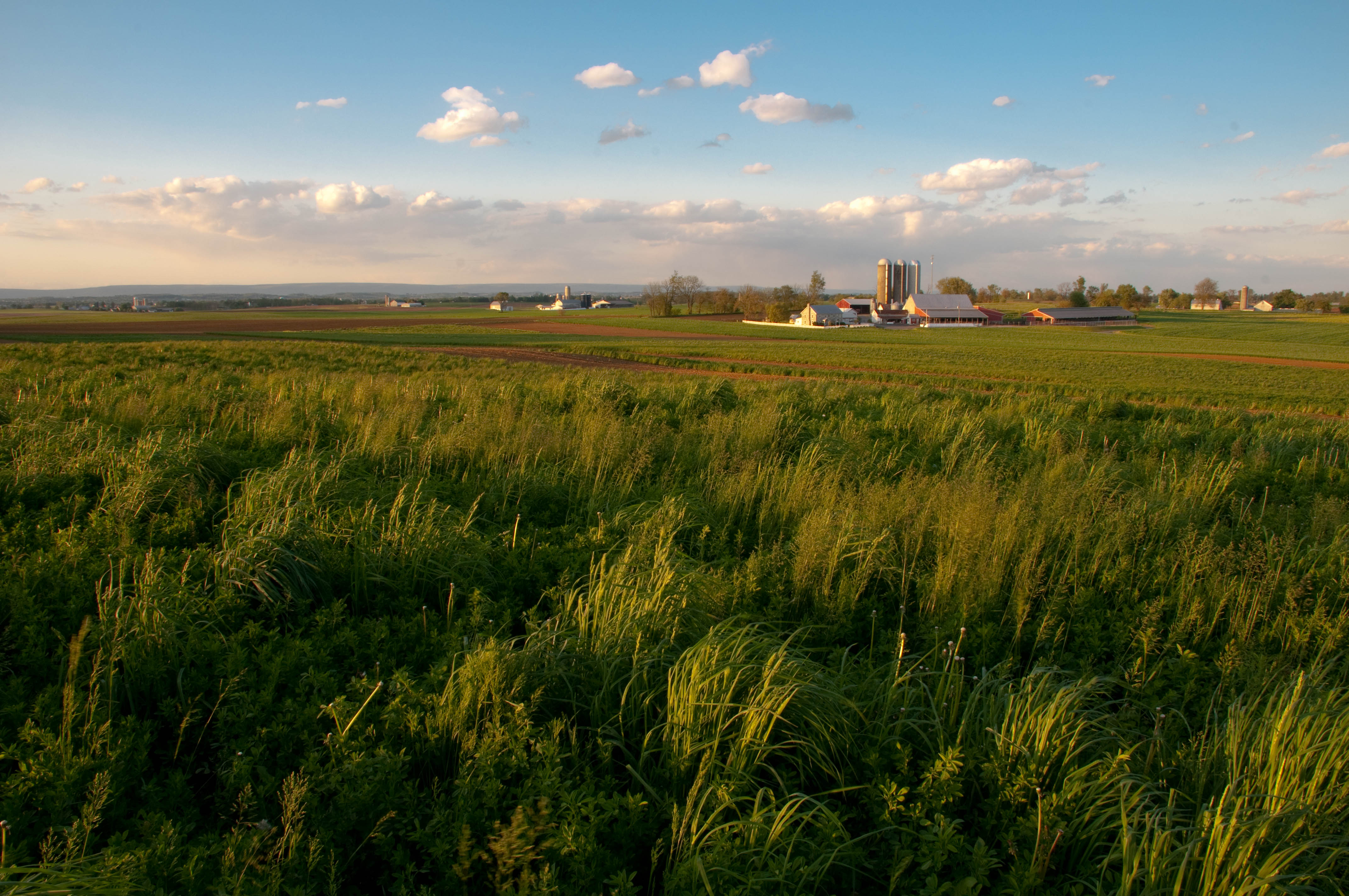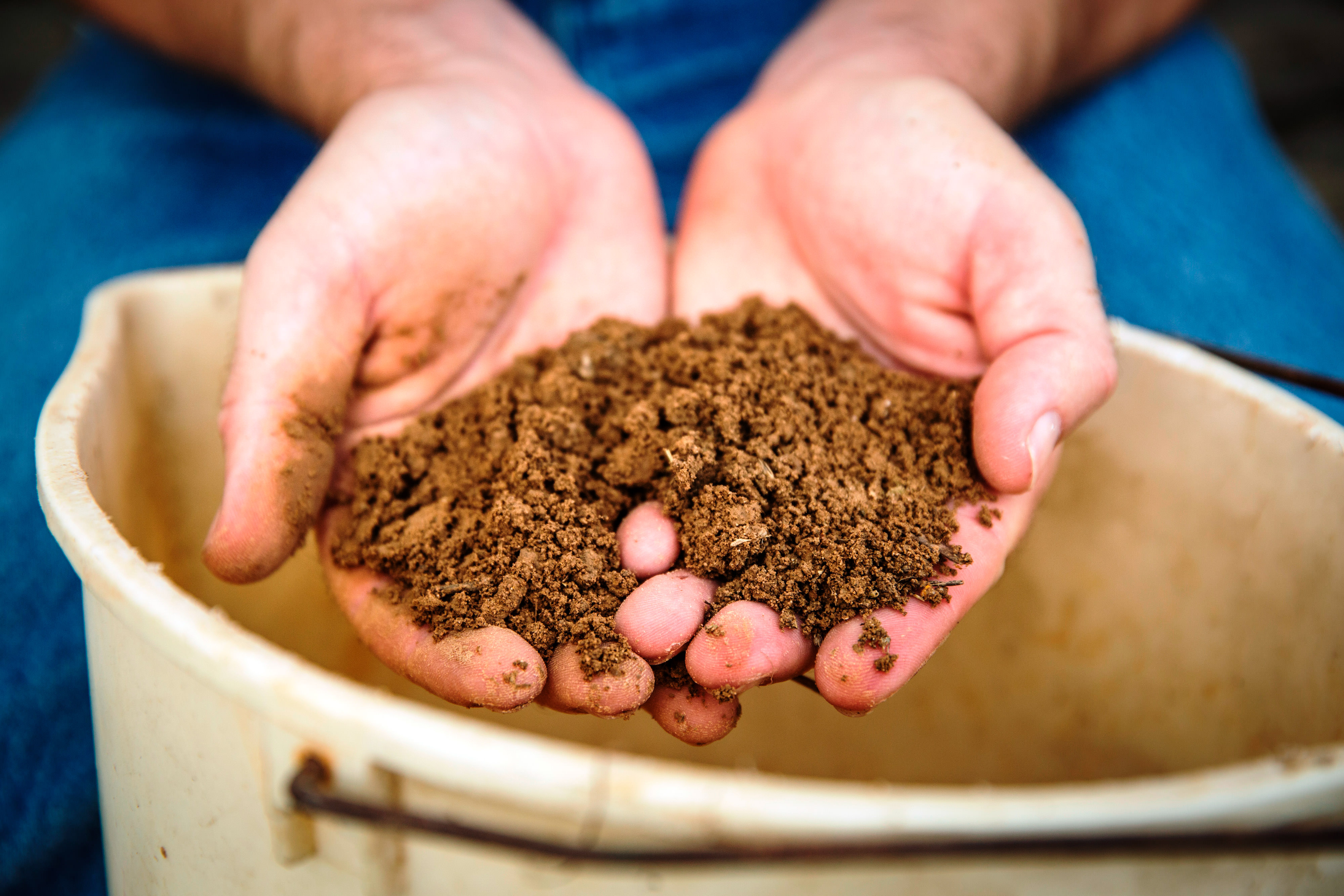Farming represents the backbone of Pennsylvania's heritage. With 52,000 farms and 7.3 million acres of farmland, agriculture is also a big business in Pennsylvania, accounting for approximately $83.8 billion in direct economic output, 280,500 jobs and $10.9 billion in earnings.
In the 21st century, the agriculture industry faces pressing challenges related to producing enough food, fuel and fiber to support a rapidly increasing population without harming our lands and waters. As one of six states comprising the 64,000-square-mile Chesapeake Bay watershed, Pennsylvania also has an enormous responsibility for ensuring that pollution and excess nutrients from cities, industries and farms is stored and filtered before entering local waterways.
With this in mind, The Nature Conservancy is teaming up with farmers, agribusiness, government agencies, academic researchers and conservationists to explore tools and methods that benefit, rather than harm, local streams and rivers, and, ultimately, our nation’s largest estuary.
Clean Water
Every day, 51 billion gallons of freshwater flow into the Chesapeake Bay, with half of that coming from the Susquehanna River alone. More than two-thirds of the Susquehanna River’s watershed is located in Pennsylvania, making the state ground zero for improving Chesapeake Bay water quality. For this reason, TNC hired Restoration Specialist Dr. Jonathan Niles to work with local farmers and partners to improve the health of our waterways.
Agriculture is the single largest contributor of nutrient pollution to the Chesapeake Bay, but thanks to sustained efforts by farmers, conservation groups, and others, that source of pollution is on the decline. To build on existing progress, TNC works directly with farmers and farm advisers to expand the adoption of best practices in conservation agriculture. In collaboration with the Pennsylvania 4R Alliance, TNC is raising awareness among farmers and farm advisers of agricultural practices and technologies that reduce nutrient pollution, improve soil health and help farmers’ bottom lines.
Meanwhile, Jonathan will help enroll farmers and landowners in programs to restore wetlands and floodplains on their properties when storms carry water off fields, wetlands and floodplains filter and trap excess nutrients and sediment before they flow into local waterways. These restoration efforts not only improve water quality, they provide critical habitat for wildlife, while also slowing and storing flood waters.
The improvements we make to Pennsylvania’s and Delaware’s waterways can not only provide benefits to the people and nature that live there but also export those benefits downstream to the Chesapeake Bay. Jonathan and the rest of our ag team working on the Bay watershed will help make sure that our on-the-ground efforts to improve in-field agriculture and edge-of-field streams and wetlands do exactly that.
Healthy Soil
Starting with Soils
Pennsylvania farmers know that soil is the cornerstone of life on Earth. They provide a true foundation for clean water and productive land for people and nature.
Healthy soils contain beneficial bacteria and nutrients that aid in food production. They also filter and store water, and capture carbon from the atmosphere.
For food production, farmers apply nutrients such as nitrogen, phosphorus and potassium to soil in the form of fertilizer to increase productivity. In heavy rains, excess nutrients and sediment not used by plants can run off into local waterways.
Over the last decade, significant improvements have been made to reduce the impact of nutrients and sediment on our waterways, but there’s still a long way to go. And as rainfall continues to increase in Pennsylvania due to a changing climate, our efforts are more important than ever.
TNC scientists, economists and agriculture experts found that improving soil health on half of U.S. soy, wheat and corn croplands could deliver up to $7.4 billion in environmental and economic benefits by 2025.
Protecting Food and Water
In response, TNC and its partners are helping Pennsylvania growers keep good soil, and associated nutrients, on fields and out of local waterways in ways that allow them to meet the rising demand for food in an economically feasible way.
This collaborative effort centers around the 4Rs of Nutrient Management—the right source of nutrients are applied at the right rate at the right time in the right place. The 4Rs serve as a checklist for assessing proper crop fertilization in order to improve soil health, decrease pollution and protect wildlife.
4Rs of Nutrient Stewardship
The 4Rs promote best management practices (BMPs) to achieve cropping system goals while minimizing field nutrient loss and maximizing crop uptake.
-

Right Source
Matches fertilizer type to crop needs.
-

Right Rate
Matches amount of fertilizer to crop needs.
-

Right Time
Makes nutrients available when crops need them.
-

Right Place
Keeps nutrients where crops can use them.
We are committed to rebuilding soils that support a prosperous agricultural industry and feed a growing population. Together with a coalition of diverse partners and local farmers, we are rethinking and improving practices that reduce tillage, increase the use of seasonal cover crops and promote sustainable grazing practices.
We are also restoring and reinvesting in important ecosystems that naturally provide valuable services to people and wildlife. This includes planting vegetation to reduce erosion along river and streambanks, reconnecting floodplains, and welcoming back wetlands that have been filled in or drained. Restoring our rivers, streams, floodplains and wetlands, which is on display at our Acopian Preserve in Lancaster County, help to trap pollutants and store water.
PA Farmers: Partners In Conservation
In 2019, a grant from the York County Community Foundation fueled efforts to build partnerships that support agriculture and water quality. Employing the 4R Nutrient Stewardship framework, farmers in this part of Pennsylvania are learning about matching nutrient applications to crop needs to prevent excess nutrients from leaving fields and reaching surrounding waterways.
TNC is already working with Bob Buser, the patriarch of a 5th generation family farm that boasts a deep history in York County and hosted an event to showcase the 4Rs. According to Buser, cultivating crops is similar to cultivating the next generation—you need the right nutrients (or advice), applied in the right amount, right when and where they’re needed.
He adds, "Knowing what nutrients the plant needs and putting them there is key. If you add nutrients that a plant doesn’t need or spread liquid nitrogen with no ground cover, you’re just throwing nutrients and money away.”
Employing the 4Rs fortifies Buser’s knowledge and experience with new science and technology focused on applying nutrients with unprecedented precision. Working in this way results in a healthier landscape, especially soils, that benefits wildlife, water quality and crop production.
Quote: Bob Buser
It’s a great life. We’ve been entrusted with this land, and we’re doing our best to take care of it.
Additional Resources
-

Regenerative Agriculture
Using cutting-edge science, The Nature Conservancy is identifying key areas where wetland and floodplain restoration can have the greatest benefit to water quality.
DOWNLOAD
We Can’t Save Nature Without You
Sign up to receive monthly conservation news and updates from Pennsylvania.






